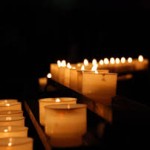In my 25 years in active ministry, clergy misconduct occurred in 3 out of my 4 calls. What the participants had in common was:
-an unwillingness or inability to be self-reflective
-a sense of entitlement, sometimes fed by an adoring community
-a separation of ministry task and spiritual practice
-isolation from any conversation that demanded truth-telling
And for the communities, there was collateral damage to faith and practice that rippled out for years to the participants, the families, the congregations, and the neighborhoods and communities beyond.
It was a wound that shaped the arc of my own call.
This was my response to my friend and colleague, Bruce Reyes-Chow’s column on Patheos last week on “Avoiding Sexual Misconduct.” He prompted me to say more about this. I cannot speak with any authority about the internal journey or processes of those in leadership who have crossed boundaries of trust and faithfulness; that is not my story to tell. However, as one who is part of the people of faith as a pastor, a spiritual director and a friend, I can bear witness to the truth that if one part of the body suffers, the whole body suffers.
There is an illusion in the North-American ethos that our individual actions are are own business, and if there is not any public harm done, we are not responsible for others’ reactions to what we do. The Way of Jesus is different, claiming that we all belong to one another, that we are connected, and that we are accountable to each other. The Church in its various iterations sets up various mechanisms for accountability which are successful to the degree that the members of the community use them. But the suffering, the damage, takes place on a soul level, which cannot be addressed even by decent and orderly processes. I hear the anguish in the voice of my friend, the receptionist in the church office, who has had to “cover” on the phone for the colleague who is out of bounds; or I see the ravaged face of my colleague who has been tapped for the Presbytery investigative commission, who has then listened to the stories, with differing “truths,” from those who are under scrutiny and those who feel damaged, and in faithfulness keeps confidentiality. In leading worship I sense anxiety in the congregation after a wound of clergy misconduct of any kind; they find it hard to sing, to pray, to believe the One whom they have come to worship.
I have been both blessed and challenged by seeing misconduct “up close and personal.” Nothing in my formal education for the ministry of Word and Sacrament had prepared me for my own encounters of disbelief and pain when trust was broken. My reactions were not simple: I felt betrayed, angry, hurt, yet baffled and protective of others. But, beyond that, when it seemed that I was in one broken place after another, I wondered if my call to this ministry was really a holy one after all. I wondered if there were any really any differences between my vocation as a follower of the Way of Jesus and any other career, and whether or not the work to which I had been called–teaching, preaching the Word and celebrating the sacraments as a pastor–really made a difference, brought wholeness to God’s world. What was most painful for me was to watch wounded people leave the faith, leave the community, or, worst of all, leave the journey toward God all together, as if giving up in despair.
These real time events created a crucible for my own faith and its practice. I asked myself, “Is my faith dependent on the behavior of others? Is my behavior accountable only to my own sense of integrity? what do I have to say to those I serve who are angry, grieving, adrift in their faith? How can I come alongside the body to help them remember Who is important and to learn to trust again? And who is this God I have committed myself to follow? What does this God require of me?” The blessing of this accrued experience has come in having to face these questions at a deeper level than ever before for myself and for those I serve. I found myself, by Grace, in a process of soul healing and deepening with learning and practice, where the Spirit restored and gave me what I needed for God’s sake and the sake of the community.
(To be continued next week).











